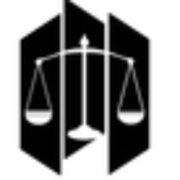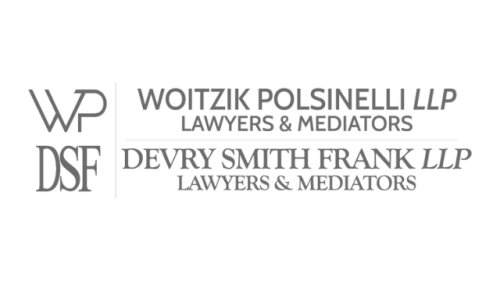Best Landlord & Tenant Lawyers in Whitby
Share your needs with us, get contacted by law firms.
Free. Takes 2 min.
Free Guide to Hiring a Real Estate Lawyer
List of the best lawyers in Whitby, Canada
About Landlord & Tenant Law in Whitby, Canada
Landlord and tenant law in Whitby, Ontario, is governed primarily by the provincial Residential Tenancies Act, 2006 (RTA). These laws determine the rights and responsibilities of both landlords and tenants when it comes to renting residential properties such as apartments, condos, houses, and rooms. This area of law covers matters such as lease agreements, maintenance and repairs, rent payments, rent increases, evictions, security deposits, and dispute resolution. Both landlords and tenants have specific legal protections, and understanding these regulations is essential for a successful and lawful rental relationship in Whitby.
Why You May Need a Lawyer
There are various situations where legal guidance can be crucial for landlords or tenants. Common reasons to consult a lawyer include:
- Eviction proceedings, including receiving or serving eviction notices.
- Disputes over unpaid rent, rent increases, or rent reductions.
- Concerns regarding repairs, maintenance, or unsafe living conditions.
- Disagreements over lease terms or illegal clauses in rental agreements.
- Harassment or privacy violations by landlords or tenants.
- Allegations of discrimination or unfair treatment.
- Complicated situations such as subletting, roommates, or breaking a lease early.
- Seeking compensation for damages to the rental unit.
- Unclear rights when a property is sold or ownership changes.
- Representation at the Landlord and Tenant Board (LTB) hearings.
Local Laws Overview
In Whitby, landlord and tenant relationships are primarily regulated by Ontario's Residential Tenancies Act (RTA), which applies to most rental housing. The key aspects include:
- Tenancy Agreements: Must be in writing and typically use the Ontario Standard Lease form. Verbal agreements are also legally valid but harder to enforce.
- Security Deposits: Only a rent deposit (last month's rent) can be collected. Damage deposits are not permitted.
- Rent Increases: Generally limited to an annual guideline amount set by the province. Specific notice requirements and timelines must be followed.
- Repairs and Maintenance: Landlords are responsible for maintaining rental units in a good state of repair as per health, safety, and housing standards.
- Evictions: There are specific legal grounds for eviction, and proper notice and process via the Landlord and Tenant Board are mandatory.
- Privacy: Landlords must provide 24 hours' written notice before entering a rental unit, except in emergencies.
- Termination: Tenants must typically give 60 days written notice before the end of a lease or rental period if they plan to move out.
Frequently Asked Questions
What should be included in a rental agreement?
A rental agreement should outline the legal names and contact information of all parties, the address of the rental unit, the amount of rent and due dates, rules about utilities, the length of the tenancy, and signatures. The Standard Lease form is required for most new agreements in Ontario.
Can a landlord ask for a security deposit in Whitby?
No, landlords can only collect a rent deposit equal to one month's rent to be applied to the last month of tenancy. Damage deposits are not allowed by law in Ontario.
How much can my landlord increase the rent, and how often?
Rent increases are regulated by the provincial government and usually limited to an annual guideline percentage. Landlords must provide tenants at least 90 days’ written notice before raising the rent, and increases are only allowed once every 12 months.
What are my rights if my landlord isn’t making repairs?
Landlords must keep rental units in a good state of repair and compliant with health and safety standards. If repairs are not made, tenants can file a complaint with the Landlord and Tenant Board or the Town of Whitby’s property standards office.
What is the process if my landlord wants to evict me?
Eviction is a legal process and cannot be enforced without an order from the Landlord and Tenant Board. The landlord must provide the correct notice using the appropriate form and reason, and you have the right to attend a hearing to present your side.
Can I break my lease early?
Generally, tenants are responsible for the full term of their lease. However, you may assign your lease to another tenant or negotiate an early termination agreement with your landlord. There are specific exceptions, such as domestic violence cases.
Do I need to let my landlord enter my unit?
Landlords must provide at least 24 hours’ written notice and can only enter for reasons such as repairs, inspections, or showings, except in the case of emergency.
What happens if I want to sublet my apartment?
You must get your landlord's consent to sublet, but they cannot unreasonably refuse your request. The original tenant remains responsible for the lease obligations.
Can my landlord terminate my tenancy if they sell the property?
A landlord can apply to terminate a tenancy if the new owner or their close family member intends to move in. Proper notice and compensation are required under the law.
What do I do if I believe I am being discriminated against?
Discrimination based on protected grounds (such as race, disability, or family status) is prohibited under the Ontario Human Rights Code. You can file a complaint with the Human Rights Tribunal of Ontario or seek legal advice for next steps.
Additional Resources
For more information or assistance, consider contacting the following:
- Landlord and Tenant Board (LTB): Handles disputes and applications related to residential tenancies.
- Durham Community Legal Clinic: Provides free legal advice for eligible low-income residents of Whitby and surrounding areas.
- Town of Whitby: For property standards, licensing, and local by-law information.
- Ontario Ministry of Municipal Affairs and Housing: Offers general info and resources on tenant and landlord rights.
- Ontario Human Rights Commission: For concerns related to discrimination in housing.
Next Steps
If you require legal assistance regarding a landlord and tenant issue in Whitby:
- Document all communications and events related to your tenancy.
- Contact the Landlord and Tenant Board to learn about your rights and file applications if necessary.
- Seek help from local resources like the Durham Community Legal Clinic for legal advice or representation.
- Consult a lawyer with experience in landlord and tenant law, especially for complex or high-value matters.
- Stay informed by reviewing official documents and current laws from reputable government sources.
Lawzana helps you find the best lawyers and law firms in Whitby through a curated and pre-screened list of qualified legal professionals. Our platform offers rankings and detailed profiles of attorneys and law firms, allowing you to compare based on practice areas, including Landlord & Tenant, experience, and client feedback.
Each profile includes a description of the firm's areas of practice, client reviews, team members and partners, year of establishment, spoken languages, office locations, contact information, social media presence, and any published articles or resources. Most firms on our platform speak English and are experienced in both local and international legal matters.
Get a quote from top-rated law firms in Whitby, Canada — quickly, securely, and without unnecessary hassle.
Disclaimer:
The information provided on this page is for general informational purposes only and does not constitute legal advice. While we strive to ensure the accuracy and relevance of the content, legal information may change over time, and interpretations of the law can vary. You should always consult with a qualified legal professional for advice specific to your situation.
We disclaim all liability for actions taken or not taken based on the content of this page. If you believe any information is incorrect or outdated, please contact us, and we will review and update it where appropriate.









